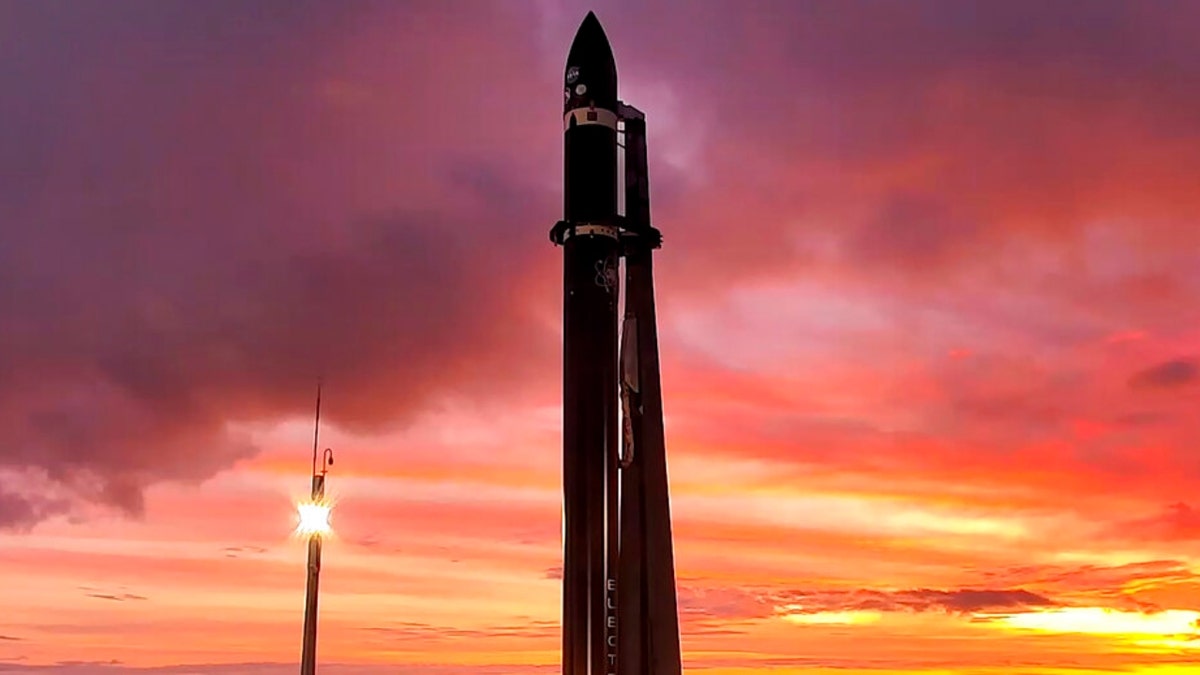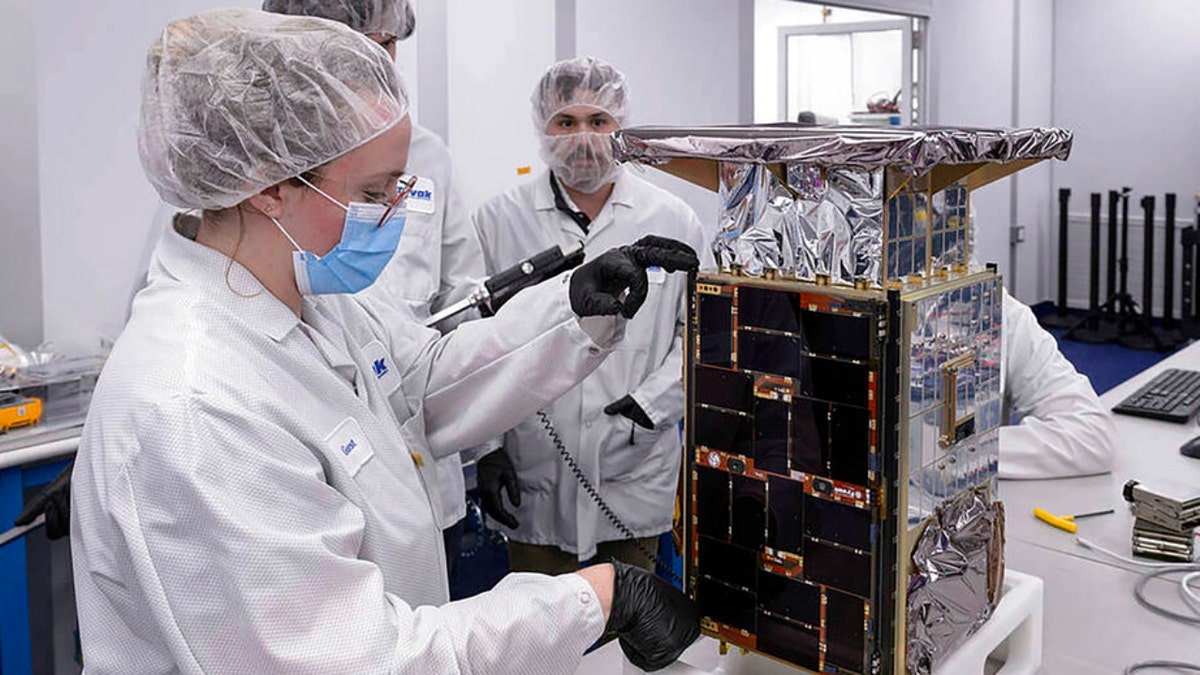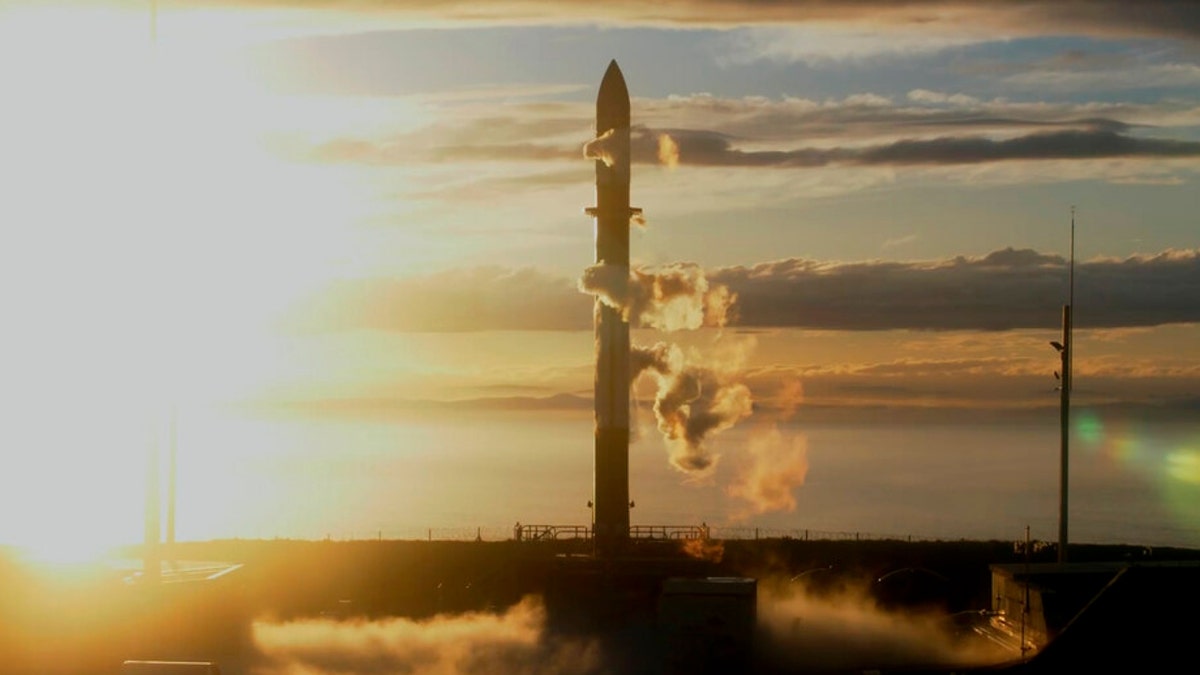Fox News Flash top headlines for July 6
Fox News Flash top headlines are here. Check out what's clicking on Foxnews.com.
Communications have been reestablished with the CAPSTONE (Cislunar Autonomous Positioning System Technology Operations and Navigation Experiment) spacecraft.
Advanced Space, which owns and operates CAPSTONE on behalf of NASA, tweeted Wednesday that it is "looking happy and healthy."
"More details to come," it said.
CAPSTONE experienced communication issues following its Monday deployment.
NASA WEBB TELESCOPE'S ‘FIRST LIGHT’ IMAGES NEARLY BRING TEARS TO ASTRONOMERS' EYES
"As a result of the communications issues, CAPSTONE’s first trajectory correction maneuver – originally scheduled for the morning of July 5 – has been delayed," the agency wrote in a blog post. "This maneuver is the first in a series that are designed to make small corrections to increase the accuracy of the transfer orbit to the moon, and the spacecraft remains on the overall intended ballistic lunar transfer while awaiting this trajectory correction."

Rocket Lab's Electron rocket waits on the launch pad on the Mahia peninsula in New Zealand, Tuesday, June 28, 2022. (Rocket Lab via AP)
CAPSTONE had successfully deployed solar arrays, stabilized, started charging its onboard battery and readied its propulsion system for the first maneuver.
CAPSTONE also made initial contact with the Deep Space Network ground station in Spain and a partial contact with the Goldstone ground station in California, enabling mission operators to determine its approximate position and velocity.
NASA TESTING OUT NEW LUNAR ORBIT

Rebecca Rogers, systems engineer, left, takes dimension measurements of the CAPSTONE spacecraft in April 2022, at Tyvak Nano-Satellite Systems, Inc., in Irvine, Calif. ((Dominic Hart/NASA via AP))
NASA noted that the mission has enough fuel to delay the initial post separation trajectory correction maneuver for several days, if deemed necessary.
The CAPSTONE satellite was launched in June from New Zealand's Mahia Peninsula onboard Rocket Lab's Electron rocket. It was carried in a second spacecraft called Photon, which broke from Earth's gravitational pull this week.
The satellite is heading toward the moon in an orbit intended for Gateway: a lunar space station built by NASA and its partners.

In this photo released by Rocket Lab, Rocket Lab's Electron rocket sits on the launch pad on the Mahia peninsula in New Zealand on May 17, 2022. (Rocket Lab via AP)
The satellite would be used for vital information, including operational data.
The plan was for the 55-pound satellite to overshoot the moon before falling back into the new lunar orbit on Nov. 13.
CLICK HERE TO GET THE FOX NEWS APP
The total mission cost is $32.7 million.
The Associated Press contributed to this report.










































